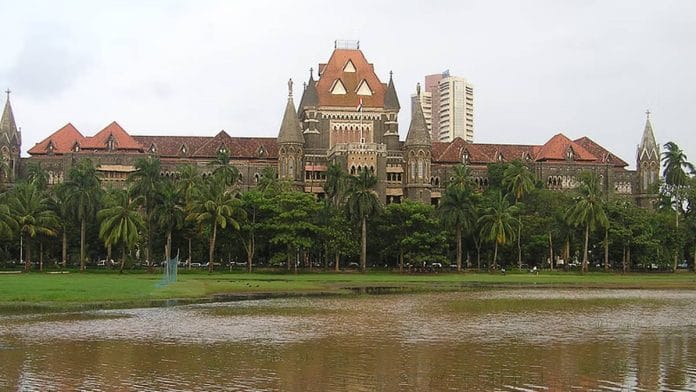New Delhi: In a significant ruling, the Bombay High Court has upheld a three-decade-old central government policy that mandates reservations and concessions for Scheduled Caste (SC) and Scheduled Tribe (ST) entrepreneurs in petroleum transport contracts awarded by public sector oil companies.
Some Bharat Petroleum Corporation Limited (BPCL) contractors challenged the guidelines, issued by the Centre 18 August 1994, that provided reservation to SC and ST bidders in the road transport contract by the public sector oil marketing companies. They moved the court after the BPCL issued a tender in August 2024.
The BPCL, however, argued that the petitioners took part in previous tenders and accepted contracts under similar terms and conditions. As a result, the company contended, they cannot be allowed to challenge the current tender conditions.
The HC concurred. “The challenge mounted to the Guidelines dated 18 August 1994 deserves outright rejection.”
What was the case?
The judgement, reserved 8 July and delivered 15 July by a division bench of Chief Justice Alok Aradhe and Justice Sandeep Marne, came in response to a writ petition filed by Patil Roadlines and others, a group of contractors transporting petroleum for the BPCL.
They challenged the BPCL’s 2024 tender terms that gave preferential treatment to SC/ST bidders and Micro and Small Enterprises (MSEs) under the long-standing government policy.
The writ petition claimed the concessions offered to SC/ST bidders under the 1994 directive were unconstitutional. According to them, such reservations could only be made in the context of public employment under Articles 15 and 16 of the Constitution.
They also argued that the 1994 guidelines, being executive instructions, lacked the force of law and violated their rights under Article 14 (equality) and Article 19(1)(g) (right to trade).
The 1994 directive
At the heart of the case is a 1994 policy of the Ministry of Petroleum and Natural Gas, instructing public sector oil companies to extend certain concessions to SC/ST bidders in transport and handling contracts.
These included relaxed tender conditions such as lower security deposits and reduced vehicle ownership requirements.
The policy was based on the government’s broader objective under Article 46—part of the Directive Principles of State Policy (DPSP)—of the Constitution, which directs the State to promote educational and economic interests of the weaker sections, particularly SCs and STs.
The policy was routinely followed in tenders floated by oil PSUs including the BPCL, Indian Oil and HPCL.
It remained legally unchallenged before the group of contractors transporting petroleum for the BPCL moved the high court. The petition challenged 15 percent reservation provided for the SC category bidders and 7.5 percent for those belonging to the ST category.
The Bombay High Court rejected their petition, making several key observations that reinforced the constitutional foundation of the 1994 policy and the broader principles of affirmative action.
The court first clarified that affirmative action is not restricted to public employment alone and that reservations and concessions for SC/STs can extend to economic domains such as government contracts and public procurement.
This, the court said, is a legitimate expression of the State’s obligation to promote the welfare of marginalised communities beyond traditional areas such as jobs and education.
“Apart from social reservations, provisions are made for giving economic impetus to various classes of entrepreneurs like micro, medium and small enterprises, women entrepreneurs, etc. All these measures are aimed at promoting commerce in a select class of entrepreneurs who otherwise find it difficult to compete with open bidders on account of their socio-economic background, lack of resources, lack of opportunities, etc,” the 21-page order read.
In response to the argument that the policy violated the right to equality under Article 14, the court held that the guidelines were, in fact, aligned with the equality mandate. Far from being discriminatory, the policy advances substantive equality by creating conditions for the economic upliftment of those historically excluded from commercial participation, it said.
The court also ruled that the petition was barred by delay and acquiescence, essentially meaning the right is lost due to an unreasonable delay in claiming it, and the claimant’s passive acceptance to the situation.
The guidelines had been in place since 1994 and were applied in previous tenders—most notably in 2018—where the petitioners participated without raising any objections. Their challenge in 2024, after years of silent acceptance and benefit under the same rules, lacked credibility, the court said.
It said, “There is gross delay in challenging the impugned Guidelines which are issued in and implemented since 1994. It is not that the Petitioners learnt about the impugned Guidelines for the first time now. They have suffered the same for the last several years without any demur and have acquiesced in the same.”
Finally, the court reiterated the principle of judicial restraint in matters involving government tenders. It stressed that courts do not evaluate the wisdom of tender policies but only review the fairness and legality of the decision-making process.
Unless a tender process is shown to be arbitrary or tainted by mala fide, courts do not interfere with the discretion exercised by tendering authorities.
With this ruling, the Bombay High Court has not only upheld a specific PSU policy but also reaffirmed the constitutional principle that affirmative action is a continuing obligation of the State, evolving beyond traditional domains like education and employment.
(Edited by Ajeet Tiwari)
Also Read: Why Bombay HC ruled in favour of PVR, BookMyShow on convenience fees for online movie tickets






